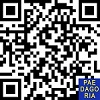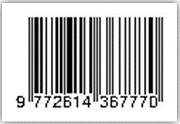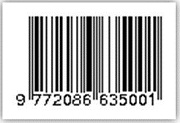THE EFFECT OF THE ENVIRONMENTAL EXPLORATION APPROACH ON THE CRITICAL THINKING ABILITY OF HIGH SCHOOL STUDENTS
Abstract
Abstract: Proses pembelajaran yang monoton, kurangnya sumber belajar yang efektif serta minim penggunaan pendekatan inovatif menjadi permasalahan utama bagi siswa. Penelitian ini bertujuan untuk mengetahui pengaruh pendekatan jelajah alam sekitar terhadap kemampuan berfikir kritis siswa SMA. Jenis penelitian ini Quasi Eksperiment, Pretest Postest Non Equivalent Control Group Design dengan pendekatan kuantitatif, melibatkan sampel dari kelas XI IPS 1 yang terdiri dari 33 siswa sebagai kelompok eksperimen dan kelas XI IPS 2 yang berjumlah 26 siswa sebagai kelompok kontrol, dengan total populasi penelitian sebanyak 83 siswa. Instrumen yang digunakan dalam penelitian ini meliputi tes tulis dan tes non-tulis. Tes tulis diperoleh melalui pelaksanaan pretest dan postest 15 soal (PG) dan 3 soal (Esay) sedangkan tes non tulis diperoleh dari hasil lembar penilaian diskusi dan portofolio. Hasil perhitungan uji hipotesis akhir (Uji t) yang dilakukan menggunakan aplikasi SPSS Versi 25.0 For Windows menunjukkan bahwa rata-rata kemampuan berpikir kritis siswa di kelas kontrol sebesar 75,1, sedangkan di kelas eksperimen rata-rata nilai yang diperoleh sebesar 85,7. Nilai signifikan (sig) (2-tailed) sebesar 0,000 < 0,05. Maka dapat disimpulkan Ho ditolak dan Ha diterima artinya terdapat pengaruh pendekatan jelajah alam sekitar terhadap kemampuan berfikir kritis siswa SMA.
Abstract: The monotonous learning process, lack of effective learning resources and minimal use of innovative approaches are the main problems for students. This research aims to determine the effect of the environmental exploration approach on high school students' critical thinking abilities. This type of research is Quasi Experimental, Pretest Posttest Non Equivalent Control Group Design with a quantitative approach, involving samples from class XI IPS 1 consisting of 33 students as the experimental group and class The instruments used in this research include written tests and non-written tests. The written test is obtained through carrying out a pretest and posttest of 15 questions (PG) and 3 questions (Esay) while the non-written test is obtained from the results of the discussion and portfolio assessment sheets. The results of the final hypothesis test calculation (t test) carried out using the SPSS Version 25.0 For Windows application showed that the average critical thinking ability of students in the control class was 75.1, while in the experimental class the average score obtained was 85.7. The significant value (sig) (2-tailed) is 0.000 < 0.05. So it can be concluded that Ho is rejected and Ha is accepted, meaning that there is an influence of the natural exploration approach on high school students' critical thinking abilities.
Keywords
Full Text:
PDFReferences
Amalda, J., Karwur, H. M., & Ramadhan, M. I. (2023). APPLICATION OF PROJECT BASED LEARNING MODEL TO IMPROVE STUDENT LEARNING OUTCOMES IN GEOGRAPHY. 4(1), 23–31. https://doi.org/10.53682/gjppg.v4i1.4065
Arif, A., & Saputra, W. (2019). The Use of Explicit Instruction Learning Model in Improving Student Motivation and Learning Outcomes in Geography Learning Class XI of High School. GEOGRAPHY : Journal of Educational Research & Development Studies, 7(2), 20–28.
Bare, Y., & Kurniawati, M. (2022). Perception of Teachers and Students on the Use of Google Classroom Learning Media in High School Biology Subjects. Journal on Teacher Education, 3(2), 356–366.
Dan, F., & Padang, M. A. N. (2024). Analysis of the Use of Geography Concepts in Distribution Materials. 8, 17286–17292.
Dhahana Aris Saputra, Aryo Andri, & Joko Sulianto. (2023). Analysis of the Application of Differentiated Learning with the Problem Based Learning Model on the Learning Interest of Students in Elementary School. Didactic : Scientific Journal of PGSD STKIP Subang, 9(04), 1570–1582. https://doi.org/10.36989/didaktik.v9i04.1749
Hartono, M., Nursafiah, & Ruslaini. (2023). The influence of the environmental exploration approach on student learning outcomes on the concept of the relationship between living beings and the environment. Pedagogic: Scientific Journal of Education and Learning, 10(1), 76–88.
Studies, J., & Education, P. (2024). GOOGLE EARTH PRO-ASSISTED EARTHCOMM MODEL: ITS EFFECT ON SPATIAL THINKING ABILITY A. LEARNING BACKGROUND ( Mawarni et al., 2022 ). Teachers are the most important component (Sinabariga, 2017). There is no learning model that is too se. 12(1), 580–594.
Ability, T., Critical, B., Results, D., & Geography, B. (2024). Geography Learning Magazine Influence of Problem Based Learning (PBL) Model Assisted by Nearpod. 7(1), 12–21.
Lestari, D. D., Ansori, I., Karyadi, B., Study, P., Biology, P., & Bengkulu, U. (2017). APPLICATION OF THE PBM MODEL TO IMPROVE PERFORMANCE AND CRITICAL THINKING SKILLS INTRODUCTION The progress of education in Indonesia is pursued through the development of formal education at various levels, ranging from primary, secondary, to t. Journal of Biology Education and Learning, 1(1), 46–54. https://ejournal.unib.ac.id/index.php/jppb/article/download/3156/1602
lidia mewilda, slamet rianto, momon d. t. (2024). The Effect of the Application of the Experiential Learning Model on the Geography Learning Motivation of Phase E Students of SMA Negri 1 Guguk. Education and Teaching, 07(03), 7211.
Lumandung, S., Rungkat, J., Dungus, F., & Rogahang, M. (2024). THE EFFECT OF THE ENVIRONMENTAL EXPLORATION APPROACH (JAS) BASED ON SCIENCE, TECHNOLOGY, ENGINEERING, AND MATHEMATICS (STEM) ON STUDENT LEARNING OUTCOMES ON ECOLOGY AND BIODIVERSITY MATERIALS THE EFFECT OF ENVIRONMENTAL EXPLORATION (JAS) APPROACH BASED ON. 7(1).
Mujib, A. S. (2023). The Effect of Outdoor Study-Based Problem Based Learning Model on the Learning Outcomes of Geography Students. Edu Geography, 11(1), 53–61. https://doi.org/10.15294/edugeo.v11i1.67168
Nur Astuty, E., Syamswisna, & Ariyati, E. (2017). The effectiveness of the environmental exploration approach on student learning outcomes in ecosystem materials in high school. Journal of Equatorial Education and Learning, 6(5), 4–9.
Putra, S. H. J. (2021). Environmental Exploration Approach (JAS): Its Impact on Cognitive Learning Activities and Outcomes of Junior High School Students. Journal of Natural Science and Integration, 4(2), 204. https://doi.org/10.24014/jnsi.v4i2.10030
Rizqiyah, S., Astutik, S., Apriyanto, B., Pangastuti, E. I., & Nurdin, E. A. (2023). The Effect of the EXO-OLO Task Learning Model with the Help of Media Spinning Questions on Critical Thinking Skills and Geography Learning Outcomes of High School Students. Geography Learning Magazine, 6(1), 1. https://doi.org/10.19184/pgeo.v6i1.36600
Thaariq, S. M. H., Hadi, K., & Yunita, F. (2023). Learning Outcomes of Grade VII Students of Islamic Junior High School Muslim Hands Material. 10(2), 144–150.
Triana, D., & Harizah, D. (2023). [ Research Article ] Improving Students' Critical Thinking Skills Through Guided Inquiry Models on Introductory Geography Materials. 01(2), 85–91. https://doi.org/10.69606/geography.v1i2.63
Yuliandini, F., Yandari, I. A. V., & Pamungkas, A. S. (2019). The Effect of the Learning Cycle 5E Learning Model on Students' Critical Thinking Ability in Mathematics Subjects. Primary : Journal of Science and Basic Education, 11(2), 133. https://doi.org/10.32678/primary.v11i02.2323
DOI: https://doi.org/10.31764/paedagoria.v16i2.28100
Refbacks
- There are currently no refbacks.
Copyright (c) 2025 Ibrahim Baim, Zumrotin Nisa, Rendra Zainal Maliki, Zulnuraini Aini

This work is licensed under a Creative Commons Attribution-ShareAlike 4.0 International License.
Paedagoria : Jurnal Kajian, Penelitian dan Pengembangan Kependidikan
Fakultas Keguruan & Ilmu Pendidikan | Universitas Muhammadiyah Mataram.
_______________________________________________
 | Paedagoria : Jurnal Kajian, Penelitian dan Pengembangan Kependidikan |
______________________________________________
CURRENT INDEXING:
EDITORIAL OFFICE:


















